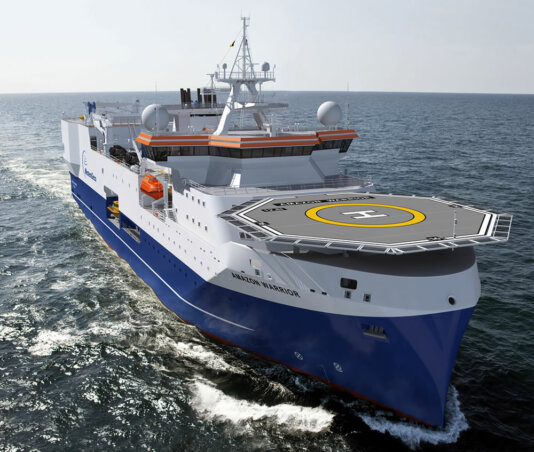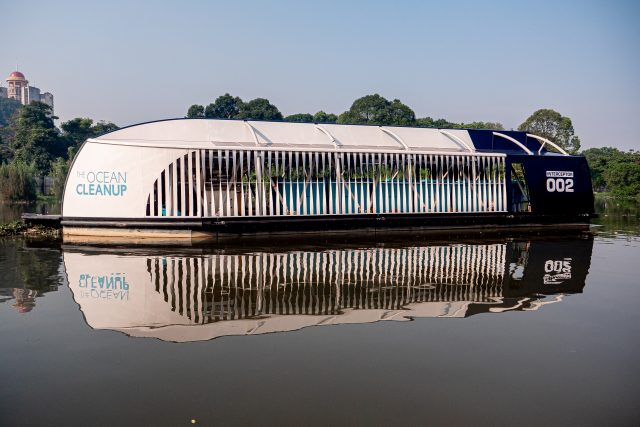- About
- Topics
- Story
- In-Depth
- Picks
- Opinion
- News
- Donate
- Signup for our newsletterOur Editors' Best Picks.Send
Read, Debate: Engage.
| January 21, 2022 | |
|---|---|
| topic: | Energy |
| tags: | #Shell, #South Africa, #indigenous people, #ocean pollution, #water |
| located: | South Africa |
| by: | Cyril Zenda |
On 5 January, South Africans cheered as Amazon Warrior, a vessel hired by Royal Dutch Shell Plc. to explore for potential oil and gas, had departed exactly a months after it was due to embark on a controversial seismic exploration off the country’s eastern coast.
This followed a 28 December court ruling granting a petition by environmentalists, indigenous groups and fishery organisations that Shell’s plans to conduct seismic surveys for oil and gas reserves below the seabed off South Africa’s Wild Coast area be stopped.
“As the indigenous people of the area, we feel vindicated, we feel heard and listened to,” Sustaining the Wild Coast director, Sinegugu Zukulu, also a local traditional leader who filed the main affidavit in the lawsuit, told FairPlanet in an interview after the ruling. “For Shell to explore the ocean that we are dependent on as local communities, without talking to us, without consulting us directly, as directly-affected people, it is wrong, it is illegal.”
The court ruling, which effectively confirmed that local communities were not consulted at all, came as huge relief to the communities after the court had, in early December, thrown out a similar application by another group of environmental stakeholders. Zukulu said they had to rope in some marine biologists to buttress their argument that the planned seismic exploration would do irreparable harm to their primary source of livelihood.
“We are saying that seismic exploration is going to have a direct negative impact on our lives because research that has been done in other areas has shown that this exploration would cause irreparable harm,” Zukulu said.
“So we were able to find marine biologists, who are experts in this, who have done research on the impact of seismic exploration and they were able - in their affidavits - to show that this will cause irreparable harm to marine life, which will impact directly on our livelihood.”
Shell’s controversial 3D seismic survey planned for the Wild Coast would have involved the use of the Amazon Warrior to drag up to 48 air guns methodically through 6,011 square kilometres of ocean surface, firing extremely loud shock wave emissions that penetrate through 3km of water and 40km into the earth’s crust below the seabed.
The ship would have worked around the clock for five months, firing the air guns every 10 seconds. Scientists and environmental experts say that if this process were to take place, marine life on this sensitive Wild Coast area would be panicked and damaged.
“As the indigenous people of the area, we feel vindicated, we feel heard and listened to”
In granting the interdict sought by communities affected by the planned blasting and supporting civil society organisations, the court said that Shell was under a duty to meaningfully consult with the communities and individuals who would be impacted by the seismic survey, and that based on the evidence provided, Shell failed to do so in the case of the applicant communities who hold customary rights, including fishing rights.
The court noted that these communities also hold a special spiritual and cultural connection to the ocean.
In arguing their case, Zukulu and his colleagues relied on cultural and spiritual harm; the threatened harm to marine life; and the negative impact on the livelihood of small-scale fishers, arising from the harm to marine life.
“Also this exploration is disregarding our constitutional right to a safe and healthy environment because if Shell does this, it has a direct bearing on us and also if the oil is found, it is going to pollute the water that we are dependent on,” Zukulu said.
In further hearings planed for the future, the courts will take up another part of the application that raises the question of whether Shell requires an environmental authorisation under South Africa’s National Environmental Management Act (NEMA) for its exploratory activities in the region.
Environmentalists say that Shell is trying to exploit a legal loophole by relying on out-dated permits that were issued before stricter NEMA requirements came into effect in 2014.
Liziwe McDaid, the strategic lead at The Green Connection, an environmental protection and small-scale fishing lobby organisation, told FairPlanet that the interdict was encouraging on their efforts to force changes to the government’s energy policies.
“The Green Connection welcomed the court decision to stop the seismic surveys off the Wild Coast,” McDaid said. “The campaign, which supported the court case, showed that South African civil society wants to protect our oceans. Fishers and the ocean life on which they depend for livelihoods are important heritage and national assets, which must be protected."
"The ocean is divided into blocks that were leased off mostly to corporates for oil and gas exploration," McDaid added, "The Shell case highlights and exposed this - no communities were consulted on the decision to lease out the ocean - hence our campaign ‘Who Stole Our Ocean?’”
These court battles - which involve a motley assortment of stakeholders that range from wildlife conservationists, environmentalists, scientists, human rights groups to fishermen and local communities, among others - are just some of many fronts on which South Africans are fighting to stop this project.
In the run-up to the court ruling, hundreds of thousands of South African citizens in over 70 towns and cities took to the beaches on the country’s eastern and western coasts to protest against Shell, while at that time an online petition against the project garnered more than 400,000 signatures.
Several South African businesses also started severing ties with Shell in protest of the exploration move.
Shell, which claims to already have lost over $60 million due to the delays caused by the court challenges, has previously threatened to walk away from this controversial project and activists are rubbing their palms in gleeful anticipation that the hated global oil giant would successfully be shooed away.
“We hope that the breathing space created by such court actions is a pause for society to consider the future and to then move to ban exploration of the oceans. Our campaign will continue to push for a moratorium on all off shore oil and gas activities,” vowed McDaid.
On its website, Shell said that it “respects the court decision in relation to the Wild Coast survey and has suspended the survey while we review the judgment.”
“I think it’s a major step to show that communities must have a say in any oil and gas developments that impact them,” Dr Alex Lenferna, secretary of the Climate Justice Coalition and a climate justice campaigner with 350Africa.org, told FairPlanet. “Additionally, it shows that for many communities protecting the environment they depend on is more important than the unequal, polluting and harmful profiteering of fossil fuel corporations and the governments that serve them.”
Image by Joshua Gaunt
By copying the embed code below, you agree to adhere to our republishing guidelines.

